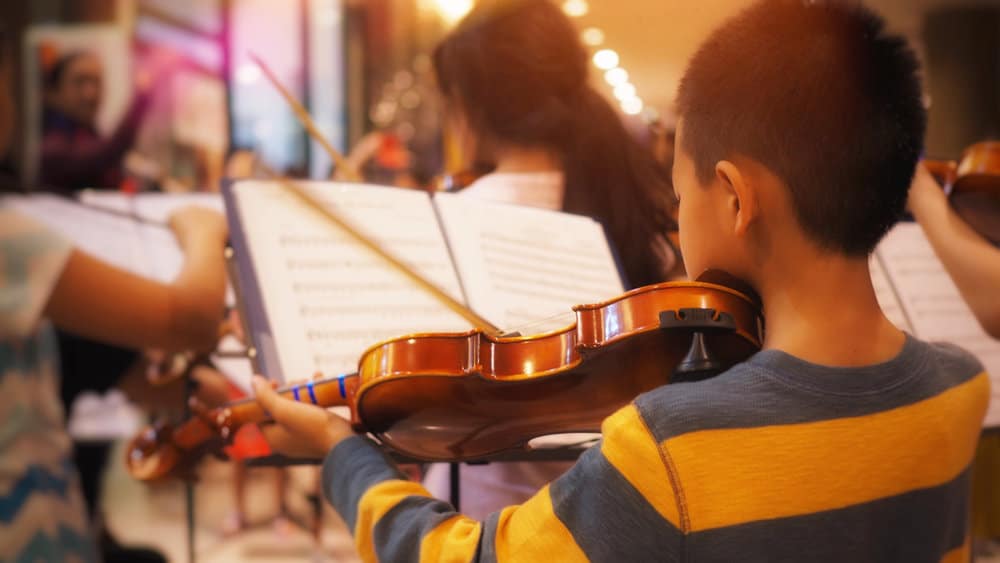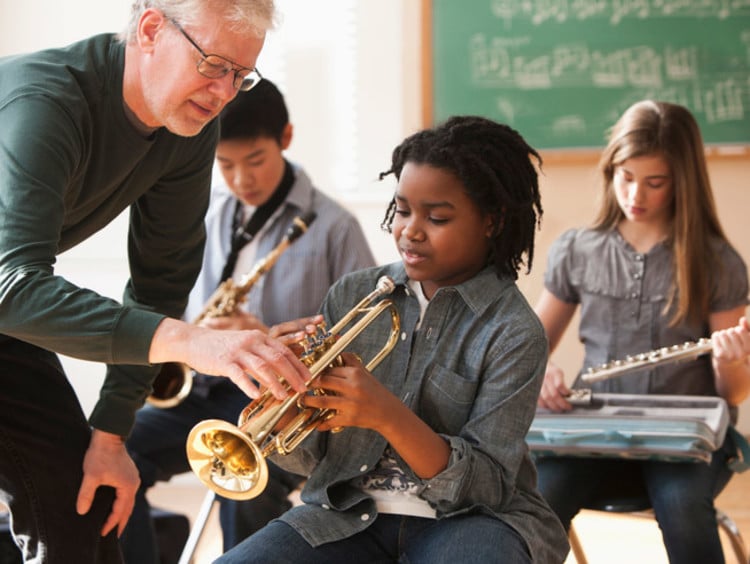Contents
In addition to being fun and adventurous, learning to play music can provide a wide range of benefits, including memory improvement, muscle coordination, and discipline. That is why a lot of parents sign up their kids for music lessons.
But if you didn’t get a chance or didn’t opt for music lessons as a child, you can do that in your adult life. There is literally no age limit when it comes to learning music – you just have to be dedicated.
In fact, as an adult, you can catch on really quickly because of your maturity and better level of understanding. Moreover, most people listen to very diverse music in their adult life. If you are one of them, your music taste and sense can help you understand the composition better.
Contrary to the misconception, music theory isn’t “boring” or “dry.” It might be that way if you tried to learn music theory as a kid. But as an adult, it would be like studying the most amazing subject ever. Indeed, it looks like more fun to just grab a guitar and start beating strings to make some fun sounds. But it is ten times better to first learn to play the guitar properly and write your own song.
Anyways, learning the music theory isn’t really the problem we are concerned about, the problem is the fact that a lot of people don’t find the right kind of teachers to learn music. If you are a contemporary artist, you probably don’t need the theory that people in the 80s used to learn.
Secondly, as an adult, who has the time to invest time, money, and efforts into something passionate? This problem is that most adults struggle with when they are making their minds about learning music. They have too much responsibility on their shoulders to invest in music, even though are in love with the art of music.

Well, we have got tips for you to solve all (or most) of your problems that would make it easier for you to learn music as adult life. Read the tips below!
1. Sign Up for Online Lessons
As we said above, learning music in-between hustling through your adult life can be a problem for most young adults. If that is your case, you can save a lot of time and money if you sign up for Facetime music lessons.
During these online lessons, you will learn everything that you would learn if you attend the class physically. The charges would obviously be lesser than the physical class. And you don’t have to spend time and money to travel to and from the class. It makes your life a lot easier while it gives you something in return: the art of music!
2. Choose the Music You Like
When you are deciding to learn music, you need to choose an instrument that you are already interested in. It is important that you be absolutely certain about the music you choose – because a lot of people decide to learn certain instruments out of peer pressure, and they end up quitting after months of lessons after they realize that that instrument wasn’t really for them.
Therefore, you should go for the instrument that you like. You don’t know what you like? Well, maybe you were hearing that song and really liked the beat of drums? Maybe the electric guitar in the long songs makes you feel something? Maybe you prefer acoustic versions of the songs better than the originals.
Depending on the music you frequently listen to and what seems the right fit for your personality, it is very easy to figure out the kind of music you like.
3. Set Realistic Goals
It is important that you set goals while you are learning music. If you are learning with the help of a music teacher (that you definitely should if you are a beginner), maybe your teacher would already assign you certain goals to work on, but that’s not what we are talking about here.
We are talking about your personal goals that would keep you motivated and focused. These goals would persuade you to practice and stay on track. And these goals need to be absolutely realistic. Too easy or too hard goals can easily put you off-track and ruin your experience.
See, your short-term goals depend on your endgame. What is your plan? Why do you want to become a musician? Do you someday want to release your own album and perform on tours, or do you just want to jam with friends at parties and do some open mic nights? Is music just your hobby, or is it your passion, and do you want to make it your profession?
After you know all the answers, set your goals, and be specific and measurable when you do that. For instance, you could not make a goal that you want to be as good as Beethoven in a month, but you can make a goal of learning the first movement of Moonlight Sonata in a month (you can do that with any of your favorite artists and song – it will keep you interested).
These goals should contain deadlines, and you need to abide by them if you want to take your music journey seriously. That being said, don’t be extra hard on yourself, we don’t want you to miss out on the fact that music is fun.

4. Don’t Stop Practicing
Practicing is the core part of learning music. Sure, you would practice regularly when you are just beginning to take your music lessons. You would be excited about the new journey, you would be glad to have finally found your passion. But after it becomes a regular thing, you are likely to gradually lose the fire of it.
That would be the most critical time of your music journey’s beginning. You would still be up for taking classes because you love so much. But since you would be so used to it, you might not set goals anymore or practice by yourself. But we need you to know that you shouldn’t stop. Practicing is what will help you improve your mistakes, record your performance, master your skills, and learn new things.
5. Listen to Lots of Music
You are already a big fan of music – so much that you are making music yourself. Well, when you are starting your musical journey, it is important for you to listen to music similar to the kind you are learning. If you are taking piano lessons, you should listen to piano covers of songs, and if you are learning drums, listen to rock more. If you can, visit the artists on their live gigs to get the idea about how artists having a certain music style perform in front of a live audience.
Moreover, you can use a metronome to record your speed while practicing.
Another great way to fasten your improvement is to record your own music while practicing and listen to it later. Note down if you noticed any mistakes, and try to improve them while playing the same music again. After doing this, again and again, it will be easier for you to notice your mistakes on the spot.